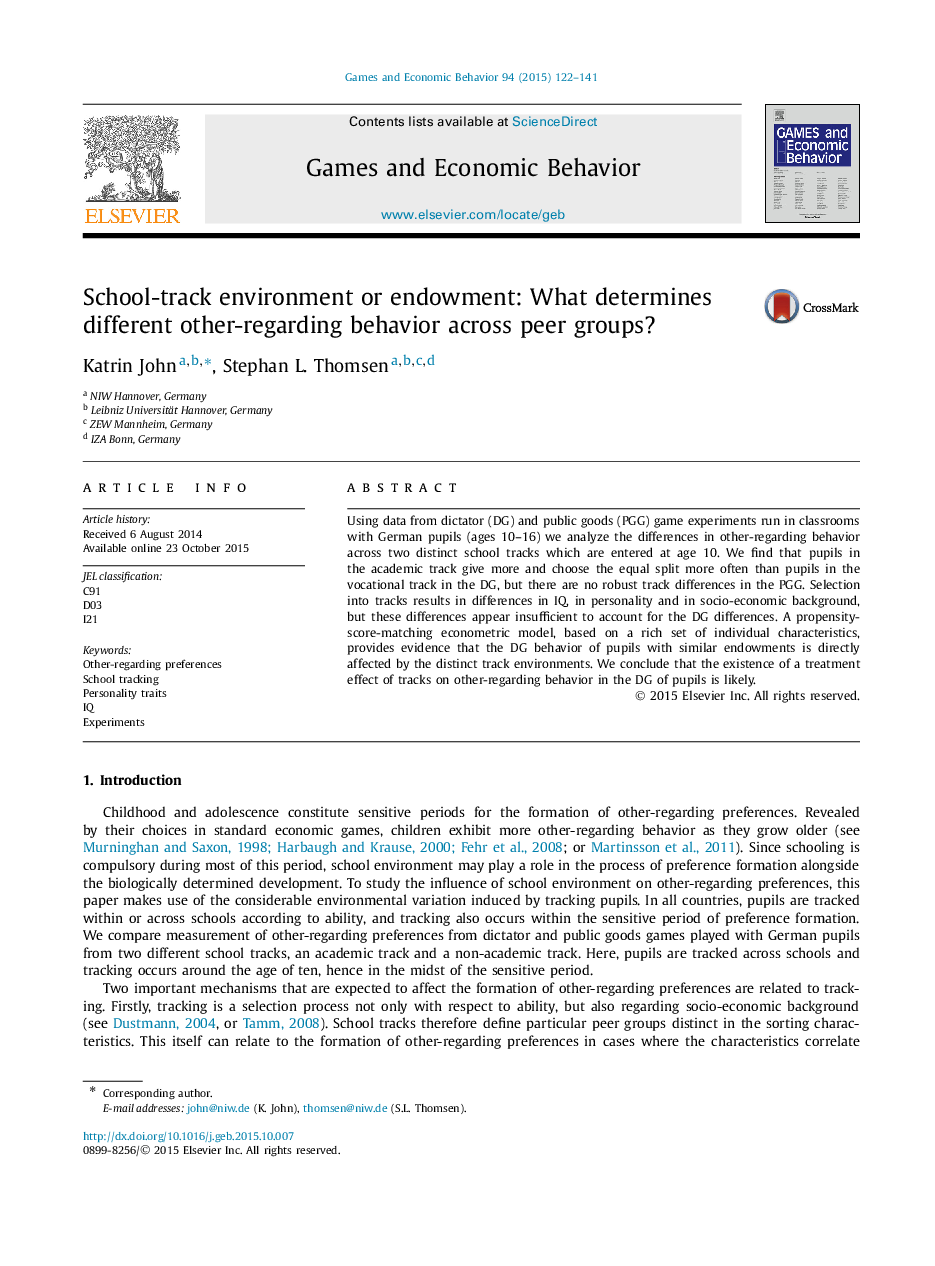| Article ID | Journal | Published Year | Pages | File Type |
|---|---|---|---|---|
| 5071555 | Games and Economic Behavior | 2015 | 20 Pages |
Abstract
Using data from dictator (DG) and public goods (PGG) game experiments run in classrooms with German pupils (ages 10-16) we analyze the differences in other-regarding behavior across two distinct school tracks which are entered at age 10. We find that pupils in the academic track give more and choose the equal split more often than pupils in the vocational track in the DG, but there are no robust track differences in the PGG. Selection into tracks results in differences in IQ, in personality and in socio-economic background, but these differences appear insufficient to account for the DG differences. A propensity-score-matching econometric model, based on a rich set of individual characteristics, provides evidence that the DG behavior of pupils with similar endowments is directly affected by the distinct track environments. We conclude that the existence of a treatment effect of tracks on other-regarding behavior in the DG of pupils is likely.
Related Topics
Social Sciences and Humanities
Economics, Econometrics and Finance
Economics and Econometrics
Authors
Katrin John, Stephan L. Thomsen,
